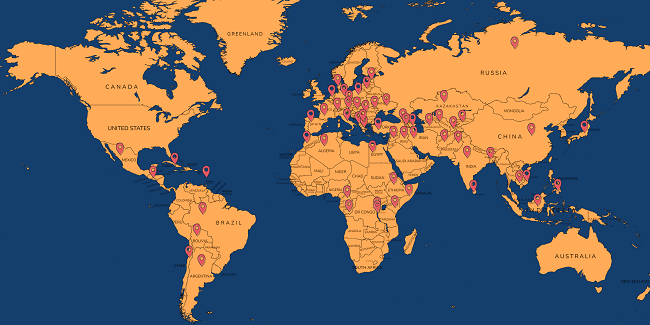Data Research
Collecting names since 2007
NameAPI processes a wide set of Personal Identifiable Information (PII), which refers to any data that can be used to identify or distinguish an individual. This includes but is not limited to personal names, addresses, email addresses, titles, professions.
Our team, a group of specialized researchers and native collaborators, are continuously collecting and classifying all parts of personal and legal names from around the world, including given names, surnames and their hypocorisms (short, diminutive, augmentative forms and nicknames). These are linked with additional information, including gender, language and frequency. Our database reflects a comprehensive coverage of global naming conventions, ensuring authenticity and accuracy.
With over a decade of dedication, we've built the largest database of names, providing an invaluable resource for businesses and individuals alike. Our ever-growing collection ensures you have access to a world of possibilities for handling personal names in your software.

A World of Names: Every Language, Every Culture
Our database contains over 3 million names from all the cultures around the world. Through ongoing research, we strive to include names from every corner of the globe.
From the elegant curves of Arabic script to the intricate strokes of Hanzi characters, NameAPI embraces the richness of global naming traditions. Whether it's the Cyrillic alphabet used across Slavic nations, or the unique systems like Hebrew, Greek, Devanagari (found in Hindi and Sanskrit), Burmese, Hangul (Korean), and countless others, our database transcends language barriers, ensuring the webservices can process names in all writing systems.
But names are just the beginning. We go beyond names, capturing all the details we need to understand personal identification. This includes titles ("Mr.” or "Ms.”) and professional designations, nicknames, both playful and formal, and relations between names, like patronymics and matronymics. Furthermore, we account for variations like gender-opposite variants and transliterations used across languages. Additionally, qualifiers like "Sr." or "Jr." and the building blocks of names themselves – prefixes, suffixes, and name elements – are all stored and managed within our database.
An Expanding International Team
To guarantee cultural accuracy, we prioritize collaboration with native speakers for data validation and data enhancement.
At the core of our approach is a strong commitment to accuracy. While thorough research is essential, the key to our methodology is the native review process. Over the years, we've worked with around 100 native speakers from 60 different nations. Working with these experts goes beyond professional interaction; it’s an enriching experience that gives us a chance to explore their native languages, understand subtle expressions, and appreciate the cultural intricacies shaping them.
These experts review our data and add new terms, variant names, and linguistic relationships, enhancing the authenticity and richness of our database. Their expertise is crucial in enhancing the authenticity and richness of our linguistic databases. Their contributions are indispensable in ensuring our data accurately reflects the diversity of languages and cultures.
